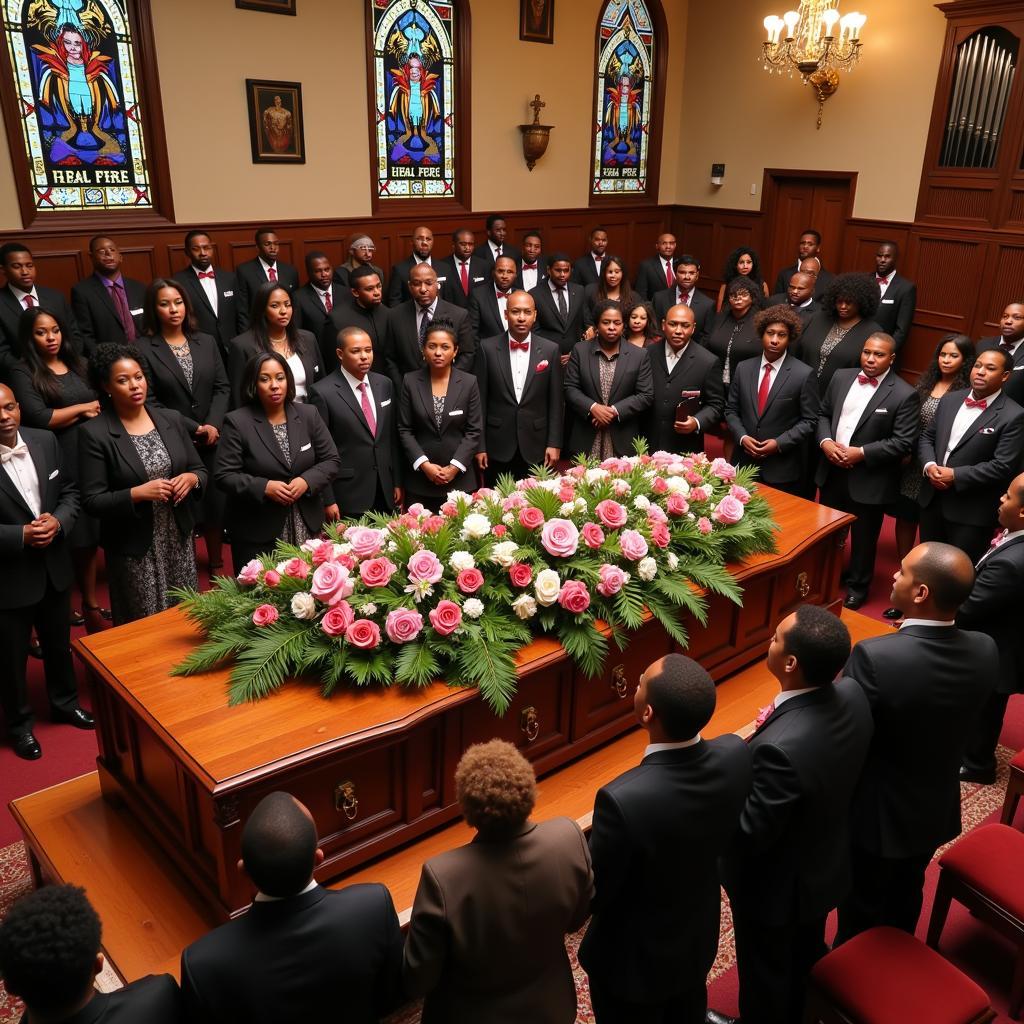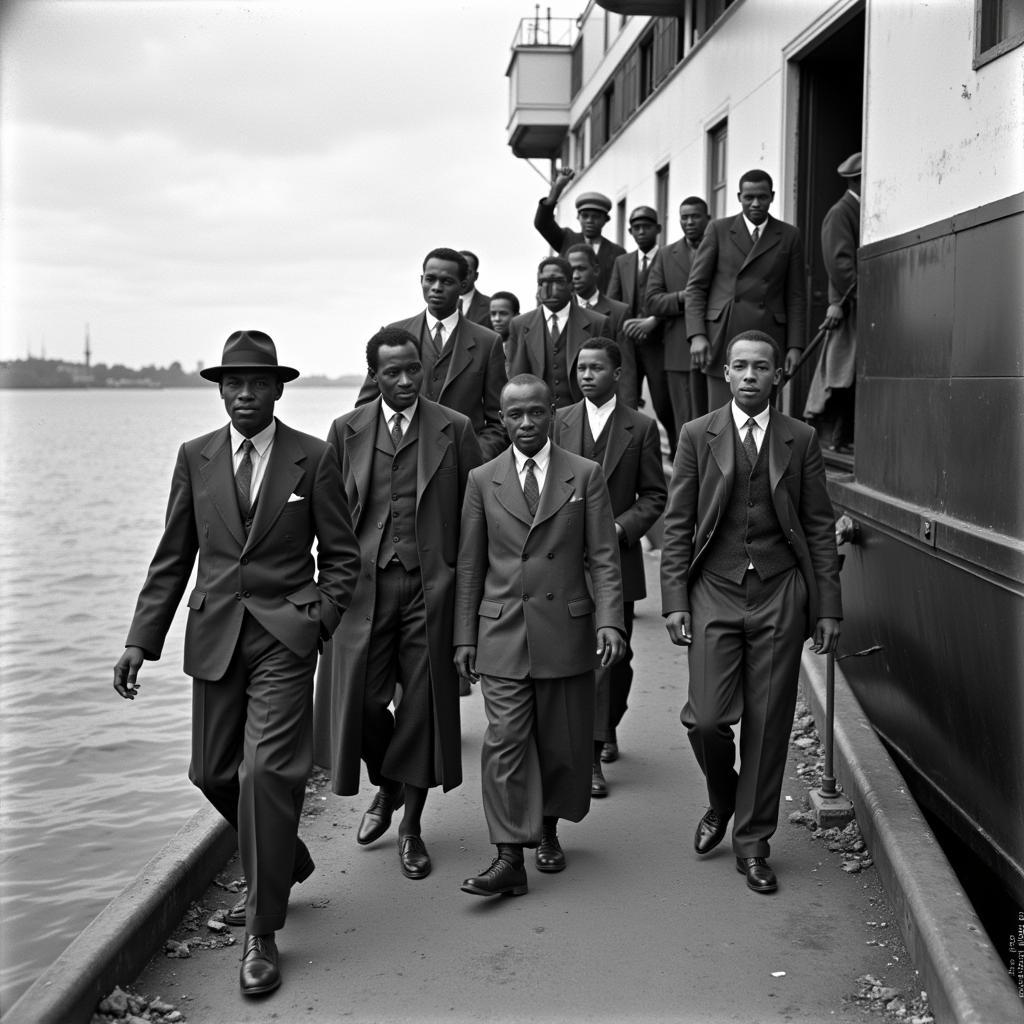African American Funeral Homes: A Celebration of Life and Legacy
African American Funeral Homes play a vital role in communities across the United States. These establishments offer not just funeral services but also a unique space for cultural expression, remembrance, and honoring the lives of loved ones. They serve as pillars of support, offering comfort and guidance during times of grief while celebrating the rich heritage and traditions of African American culture.
Understanding the Importance of African American Funeral Homes
Historically, African American funeral homes emerged out of necessity. During segregation, many white-owned funeral homes refused to serve Black families, leaving them without options during their most vulnerable moments. This led to the creation of Black-owned funeral homes, which provided not only funeral arrangements but also a safe and dignified space for mourning. These funeral homes quickly became integral parts of the community, often serving as meeting places, hubs for activism, and sources of vital information. They represented more than just a business; they were a symbol of resilience, pride, and unity.
The tradition of honoring the deceased in African American culture is deeply rooted in West African customs and rituals. These traditions have been adapted and evolved over generations, blending with Christian practices and creating unique ceremonies that celebrate life and legacy. Music, singing, and storytelling are often integral components of African American funerals, reflecting the vibrant and expressive nature of the culture.
 African American Funeral Service with Traditional Elements
African American Funeral Service with Traditional Elements
Key Services Offered by African American Funeral Homes
African American funeral homes provide a comprehensive range of services tailored to meet the specific needs of the community. These services extend beyond basic funeral arrangements and often include:
- Pre-need arrangements: Planning funeral arrangements in advance, alleviating the burden on family members during a time of grief.
- Grief counseling: Providing emotional support and guidance to families coping with loss.
- Home wakes: Traditional home wakes, allowing family and friends to gather and pay their respects in a familiar setting.
- Repatriation services: Assisting with the transportation of the deceased to their place of origin for burial.
- Customized funeral services: Creating personalized ceremonies that reflect the unique life and personality of the deceased.
These services reflect a deep understanding of the cultural nuances and traditions surrounding death and mourning within the African American community.
Finding the Right African American Funeral Home
Choosing a funeral home is a deeply personal decision. When searching for an African American funeral home, consider the following factors:
- Location and accessibility: Choose a funeral home that is conveniently located and accessible for family and friends.
- Reputation and experience: Research the funeral home’s history and reputation within the community.
- Services offered: Ensure the funeral home offers the specific services and accommodations you require.
- Cost and payment options: Discuss pricing and payment options upfront to avoid any surprises.
- Cultural sensitivity and understanding: Choose a funeral home that demonstrates a genuine understanding and respect for African American traditions and customs.
How African American Funeral Homes Embrace Cultural Heritage
One of the distinguishing features of African American funeral homes is their commitment to preserving and celebrating cultural heritage. This is often reflected in the unique customs and traditions incorporated into funeral services. These may include:
- Musical tributes: Gospel music and spirituals are often performed during funeral services, reflecting the deep connection between music and spirituality in African American culture.
- Eulogies and storytelling: Sharing stories and memories of the deceased is a central part of African American funerals, celebrating their life and legacy.
- Community involvement: Funeral services often involve the wider community, reflecting the importance of collective support and mourning.
These traditions are a testament to the strength and resilience of African American culture, providing comfort and solace during times of grief.
“African American funeral homes provide a sacred space where grieving families can find comfort and support while honoring the rich cultural heritage of their loved ones,” says Dr. Aisha Williams, a cultural historian specializing in African American traditions.
Conclusion: Celebrating Life and Legacy within the Community
African American funeral homes are more than just businesses; they are vital community institutions that provide comfort, support, and a space for cultural expression during times of grief. They play a crucial role in preserving and celebrating the rich traditions and heritage of the African American community, honoring the lives and legacies of those who have passed. Choosing the right African American funeral home can make a significant difference in the grieving process, providing a sense of peace and closure during a difficult time.
FAQ
- What is the historical significance of African American funeral homes?
- What unique services do African American funeral homes offer?
- How can I find a reputable African American funeral home in my area?
- What are some common traditions incorporated into African American funerals?
- How do African American funeral homes support grieving families?
- What is the role of music in African American funeral services?
- How do I plan a funeral that honors my loved one’s cultural heritage?
When you need assistance, please contact us at Phone Number: +255768904061, Email: kaka.mag@gmail.com Or visit us at: Mbarali DC Mawindi, Kangaga, Tanzania. We have a 24/7 customer support team.


